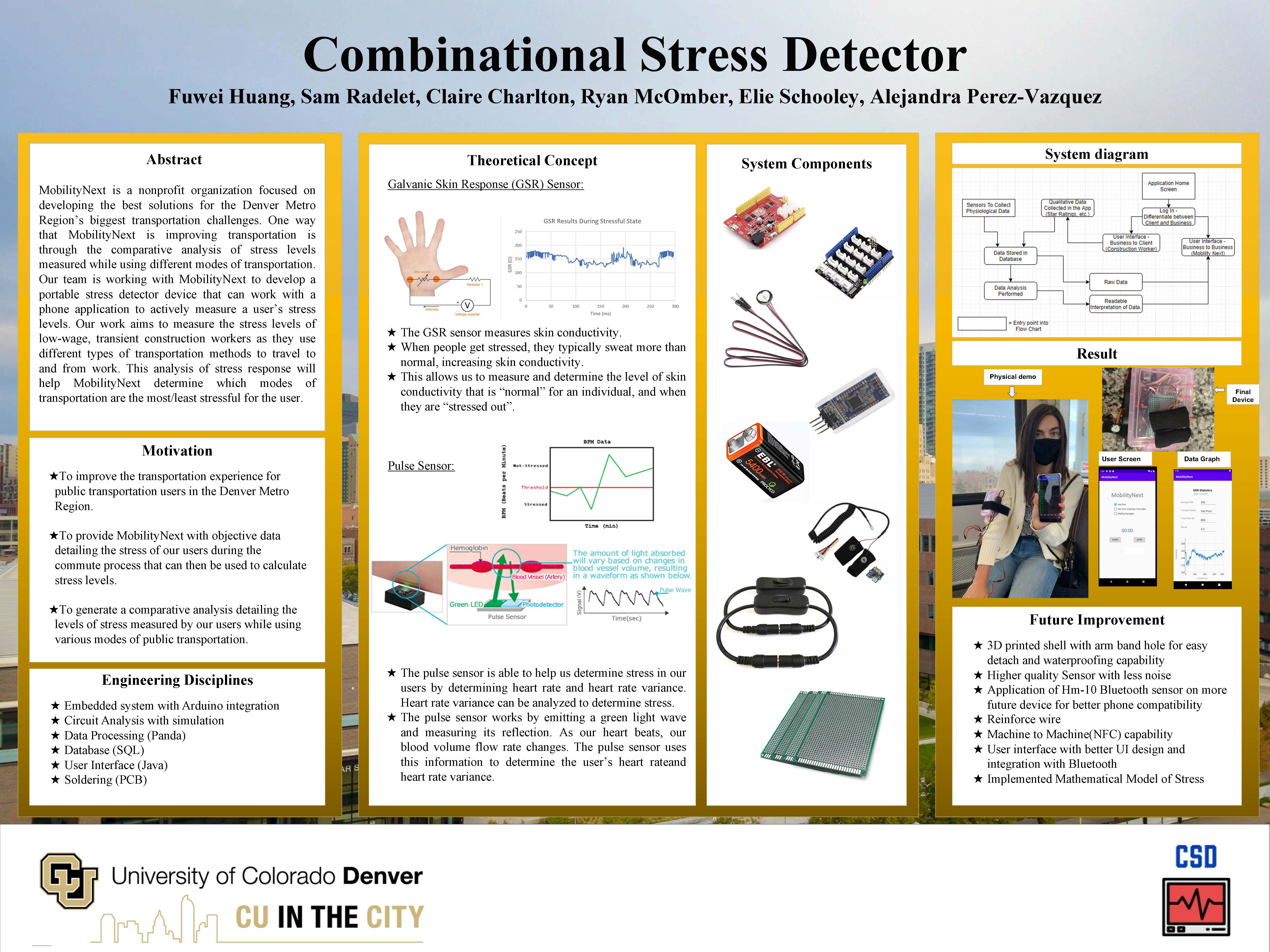Mobility Next Transportation: Commute-Based Stress Sensor and Data Collection
Multidisciplinary - Electrical Engineering & Computer Science
Project Abstract
The effectiveness of available transportation for low-wage, mobile urban workers has been an issue for many years. MobilityNext, a Denver-based mobility solutions organization, is determined to improve transportation methods available for mobile urban workers in the Denver metro area. For the past few years, MobilityNext has been studying how transient, low-wage workers feel about the transportation methods available to them. During this process, several surveys were conducted to gather information from these workers, but user input data is subjective and is therefore difficult to rely on solely.
To combat this issue, our senior design team has created a wearable device that can actively measure/record users' stress as they use various transportation methods in the hopes that this information can be used to improve available transportation. The sensors we use consist of GSR (Galvanic Skin Response), Pulse, and Bluetooth sensors. The main function of the GSR sensor is to measure the resistance on the skin. The more the user sweats, the less resistive the skin will be. During testing, we were able to conclusively notice when the testers are having micro sweat, indicating anxiety or stress, which presents as drops in the GSR value. Another function we are developing for our device is heart rate monitoring as heart rate also plays a huge factor in stress determination. Both of these physiological data sources will be stored, processed, and outputted according to various measures that MobilityNext can use to improve current their understanding of commute based stress. Our team also worked to develop an app with wireless transmission using Bluetooth technology that will allow both MobilityNext and our users to easily access and, by way of visualization, understand their biometric results. In this way, objective data can be combined with user-inputted information to help MobilityNext develop a plan that works to improve available transportation methods available for mobile urban workers in the Denver-Metro Area.
